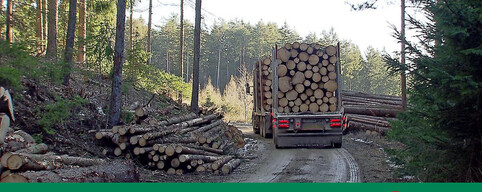

The European biomass pellets market is on an impressive trajectory, reflecting a strong regional emphasis on renewable energy and sustainable practices. With an estimated compound annual growth rate (CAGR) of 6.9% from 2023 to 2033, the market is projected to reach around USD 22.16 billion by 2033. This growth underscores a significant commitment to transitioning towards cleaner energy sources across Europe.
The upward trend in the biomass pellets market is driven by several key factors. The foremost catalyst is the European Union's robust policies and regulations aimed at reducing carbon emissions and promoting sustainable energy sources. As countries in the region strive to achieve their climate targets, biomass pellets have emerged as an attractive alternative to fossil fuels.
Biomass pellets are primarily made from compressed organic materials, including forestry residues, agricultural by-products, and energy crops. These materials are not only renewable but also significantly reduce the carbon footprint when utilized in place of traditional fossil fuels. As a result, there is a growing adoption of biomass pellets across residential, industrial, and power generation sectors.
The residential heating sector has seen a surge in the adoption of biomass pellets, as consumers seek eco-friendly alternatives to conventional heating systems. Similarly, industries are increasingly co-firing biomass pellets with coal to reduce environmental impact while maintaining energy efficiency. These trends are further supported by government incentives and subsidies aimed at encouraging the transition to renewable energy.
Furthermore, the economic benefits of biomass pellets cannot be understated. By reducing dependence on imported fossil fuels, countries within Europe can enhance energy security and foster local economies through the development of biomass resources. This shift towards domestically sourced energy aligns with broader economic goals and supports job creation within the green energy sector.
The strong emphasis on sustainable practices and stringent environmental policies continues to propel the market forward, making biomass pellets a key component in Europe's renewable energy framework.
The environmental benefits of biomass pellets are significant. The use of these pellets contributes to a reduction in carbon emissions, supporting initiatives aimed at combating climate change. By converting waste materials into energy, biomass pellets help in minimizing landfill waste and promoting a circular economy. This aligns with the global sustainability goals of reducing environmental impact and fostering a low-carbon future.
In conclusion, the European biomass pellets market appears poised for substantial growth, driven by regulatory support, environmental concerns, and a clear shift towards renewable energy sources. As the region continues to invest in sustainable practices, biomass pellets will undoubtedly play an integral role in Europe's journey towards a greener and more energy-efficient future. This market evolution not only reinforces Europe's commitment to combating climate change but also sets an example for other regions to follow in the pursuit of sustainable energy solutions.



